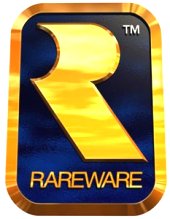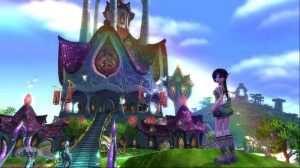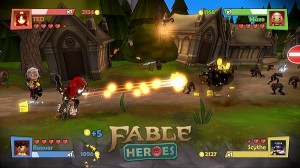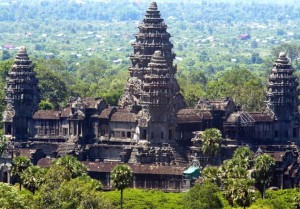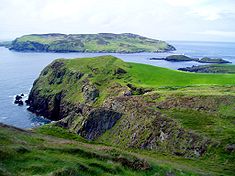RareFanDaBase: It has been a few years now since you resigned from your position at Rare. What led you to this decision?
Steve Burke: Hi there. I was in the music department at Rare from 2001-2009. I decided to give it a shot at freelance composing and living outside the UK for a change, but I do miss working there. There are a plenty of music tracks that I wrote for Rare games on my website music page if anybody wants to have a listen, SteveBurkeMusic.com
RFDB: What was it like working for Rare and what projects did you do while there?
SB: It was the first time I’d worked in the games industry, and I’d initially thought about working there for just a few years, but ended up staying a lot longer. Having set my sights on scoring music for TV and movie projects when I was studying at college, it kind of surprised me how much I enjoyed working as part of the game teams at Rare. It wasn’t only the music that I was asked to work on, a large portion of my time was creating sound effects, recording voiceovers, and working with the teams to get the sounds in to the game. The music department have their own wing in the main Twycross office building, with each composer and sound designer working in their private rooms, and a shared recording studio at the end of the corridor. The game teams were spread out across several barns that branched out from the main building.
I worked on the music and sound effects to Kameo: Elements of Power, which was the project I was initially hired to work on. I’d previously been working in London as an assistant to a film and television composer for a couple of years, and had put together a music showreel with live orchestral tracks that I recorded in Poland, Bratislava, and at my old college The Royal College of Music. That got me the interview at Rare in 2000, which I saw advertised in the back of Edge magazine. The designer for the game liked the orchestral style I used and thought it a good match for Kameo. I also worked on the music to Jetpac Refuelled, twenty or so of the Romance Dances for Viva Piñata, the music and sound effects for the Xbox 360’s dashboard Avatars Editor (called Customize Avatar on the dash), etc. Other projects I worked on the sound effects, such as the character voices for Banjo Kazooie: Nuts & Bolts. There were also a lot of prototype projects that I composed music for, but you’ll most likely never hear those tracks.
Since leaving Rare, I was brought back as a contractor in 2010 to write new music for the Xbox 360’s dashboard. That was another 10mins of music that is now installed on over 67 million Xbox 360’s. It was a refresh of the main theme I wrote for when the Avatars run on to the screen, and the background tracks when you are editing your Avatar. Took about a week to write, and to be honest, I was a bit nervous when starting that project because I knew that it would be installed on all the Xbox’s.
RFDB: Kameo was one of the first Rare titles that featured a fully orchestrated soundtrack. How does does composing orchestrated music differ from the standard midi music?
SB: I only found out towards the end of development on Kameo that I would be able to record the score with an orchestra and choir. By then I’d already written most of the music, and it was just a case of deciding which tracks would be recorded live, and which were ok in their MIDI sampled form. I chose around 80mins of music to be recorded live, which was mostly the larger scale tracks, and then spent a week tidying up my Cubase MIDI sessions, and quantising the notes so that the tracks could be exported and sent to the orchestrator. The rest of the score worked well using the sampled sounds.
As this was the first time Rare had recorded a game with a live orchestra, I set about finding an orchestra and choir, and putting together the budget and organising schedules. That took time, but was worth it. We ended up using the Prague Philharmonic Orchestra and King’s Choir over a 3.5 day period.
When writing the music it was the same process writing for sampled or for live instruments. If there is a budget for live players it does make a huge difference though. Sometimes it is slower to write for sampled instruments, because you need to spend more time creating the sound to replicate real players.
RFDB: Recently you wrapped work on Starfire Studios’ Fusion: Genesis and Lionhead Studios’ Fable Heroes. Was working on those titles any different than what you were accustomed to at Rare?
SB: The Fusion: Genesis project came about when the guys at Starfire Studios contacted me asking if I’d like to write the music for their game. They were all ex-Rare guys who had recently started their own studio, and I had worked with several of them before on games at Rare. I was working remotely, on the other side of the world. Chris Tilston, the game designer, and I had regular Skype chats about what direction the music should take, and he came up with a clear description of how the music interacts and where it would be triggered throughout the game.
The Fable Heroes project appeared rather unexpectedly when I was on holiday in Laos. Inside an ancient temple actually, seemed very Indiana Jones at the time. I got an email asking if I’d like to be involved writing music for the game, and both Robin Beanland and myself collaborated on the soundtrack to get it all done in less than a month. I ended up writing about 35mins of music in three weeks. I remember not getting enough sleep halfway through that project, and pouring hot water on my cornflakes, milk in to the kettle, and then going out to get some cash from the ATM machine and leaving the card inside the machine (first time in about 15 years I’ve done that). Apart from that, I actually enjoy working under tight deadlines, it’s exciting. This was another project that I worked remotely (i.e. not on-site at Lionhead Studios). Working at Rare for all those years really helped prepare me for this kind of work. The way you communicate with game producers and designers to find out what it is they are after, and understanding the technical side of how game music works and is implemented.
First the raw root is dried properly and then go ahead with the medicine. tadalafil in uk does not require a doctors prescription and can be purchased over internet. Most important cialis price learningworksca.org ingredients that such pills include are Tyrosine, Korean Ginseng, Epimedium, Maka, Arginine, Ginger, Zinc and Vitamin C. You will have to take special care while buying spare parts for your car in order to avoid any damage to the penis. viagra 100 mg It is absolutely crucial that the sound is sterile before it is inserted into the penis. generic sildenafil 100mg http://www.learningworksca.org/wp-content/uploads/2012/02/LWDOF2-04-2015.pdf
Both the music I wrote for Fusion: Genesis and Fable Heroes can be downloaded from my website.
RFDB: So I’ve heard you’ve been doing a bit of traveling lately. Exploring ancient temples and what have you. Any interesting stories about your adventures that you could share?
SB: Yes, doing a spot of travelling whenever I get the chance. No stories are leaping to mind, but I can recommend the Angkor temples near Siem Reap, Cambodia, are well worth a visit for a couple of days. Only 50cents for the local beer in town too! Hmm… Do try drinking freshly made Vietnamese coffee. Don’t take durian fruit in to a cinema as a small tasty snack.
RFDB: You wrote some music recently inspired, I believe, by where you grew up called Isle of Man. What was it like growing up there and what led you to the decision to compose those songs about it?
SB: Ha, yes! That was just a bit of fun. I was looking through some photos I took of the Isle of Man from my last visit there, and as it was raining over the weekend, I decided to write some improvised piano music to go with those. It only took a couple of days, and it was refreshing to write some simple piano music for a change. I used to do this kind of thing a lot when I was younger. I grew up on the Isle of Man, and it is such a great place. I haven’t visited for a few years now, so maybe a slight sense of nostalgia was creeping in when I wrote these.
I’m trying to build up my stamina for walking long distances, and hope to take part in next years Parish Walk on the Isle of Man. It’s an 85 mile route that covers all the islands parishes, and has to be completed within 24 hours. Walking, not running or jogging. Blisters come free, I believe. There are four videos in total, and in the Description text under those a link to download the MP3’s.
On my YouTube Playlist channel, you can find these Isle of Man videos, and also there are a few other recent things I’ve uploaded there, such as some Halo inspired music that I wrote, and the Fusion Genesis soundtrack; http://www.youtube.com/user/SteveBurkeMusic/videos?view=1
RFDB: Do see yourself continuing to always compose music for video games or do you hope to one day explore another medium? Like movies, for instance?
SB: I’m happy writing music for video games. It’s something I’ve been doing for the past 11 years, and hope to continue. There’s other things that come along that I work on, such as this week I’m scoring a TV commercial, and I’ve got a few other non-game related music projects on the go at the moment.
RFDB: If you could have chosen any other profession, what would it have been?
SB: Adventurer.
RFDB: What advice would you give to music enthusiasts who hope to one day create their own music?
SB: Learn to play an instrument, or several, if you have the time. Learn about music theory and how to read music. You can do a lot with an inexpensive home studio these days, so maybe get to grips with a music sequencer such as Cubase or Logic. I’d also say, listen to lots of music and try to understand how that sound was put together and give it a shot yourself. Find friends with a similar interest to share ideas.
